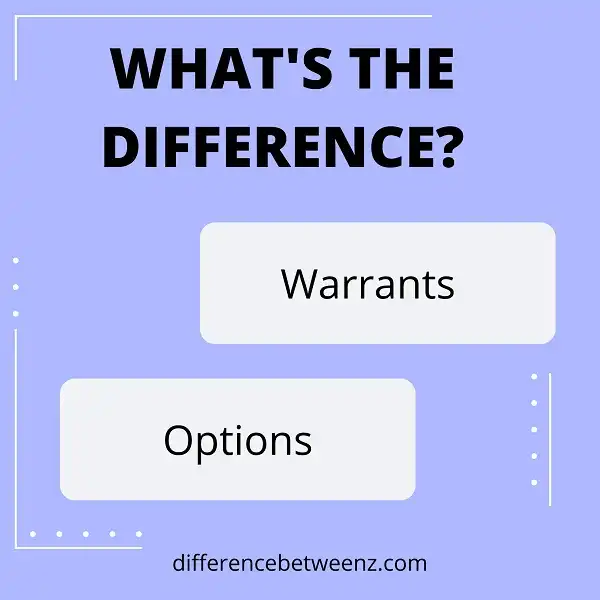When you’re investing, it’s important to understand the different types of securities that are available. Two of the most common are warrants and options. While they both have their uses, there are some key differences between them. In this post, we’ll take a look at what those differences are, and when each might be appropriate.
What is Warrant?
Warrants are a type of security that gives the holder the right to purchase shares of stock at a fixed price at some point in the future. Warrants are often issued by companies as a way to raise capital, and they can be traded on exchanges just like any other security. When the time comes to exercise the warrant, the holder will pay the strike price and receive shares of stock in return. Warrants can be either call options or put options, depending on whether they give the holder the right to buy or sell shares. Warrants are typically long-term securities, with expiration dates that can extend for years into the future. As such, they can be an attractive investment for investors who are looking to get exposure to a particular stock without having to buy it outright.
What is an Option?
Option securities are contracts that give the holder the right, but not the obligation, to buy or sell an underlying security at a specified price within a certain time period. Option contracts are traded on exchanges and can be bought and sold just like stocks. There are two types of options: call options and put options. Call options give the holder the right to buy shares of the underlying security, while put options give the holder the right to sell shares of the underlying security. Option prices are determined by a number of factors, including the price of the underlying security, the time remaining until expiration, and market volatility. Option holders typically use them to speculate on future price movements or to hedge against potential losses in an existing position.
Difference between Warrants and Options
Warrants and options are two different financial instruments that are often used for speculative purposes. Warrants give the holder the right to buy a security at a certain price within a certain timeframe, while options give the holder the right to buy or sell a security at a certain price within a certain timeframe. Warrants are generally much riskier than options because they have no intrinsic value and their value is entirely dependent on the underlying security’s price movements. Options, on the other hand, have some intrinsic value because they give the holder the right to buy or sell the underlying security. As such, options are generally much less risky than warrants.
Conclusion
In conclusion, warrants and options are both securities that give the holder certain rights, but they differ in a few key ways. Warrants are issued by the company and represent an ownership stake in the company. Options, on the other hand, are traded between investors and give the owner of the option the right to buy or sell shares at a pre-determined price. Additionally, warrants have a longer life span than options and tend to be less expensive. Finally, warrants can only be exercised once they reach their expiration date, while options can be exercised at any time before expiration. Now that you understand the differences between warrants and options, you can make more informed decisions about which type of security is best for your investment needs.


